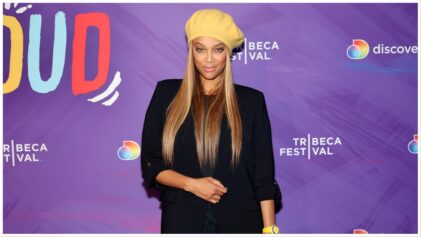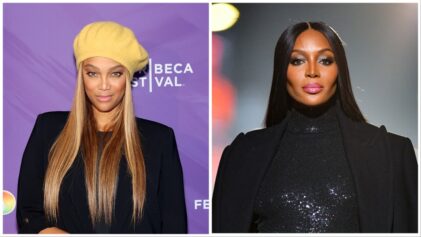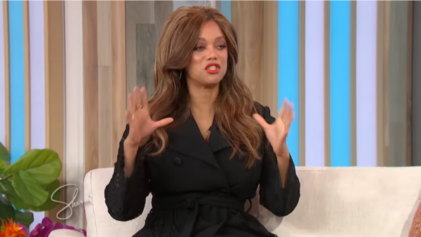With waif-like fashion models filling the pages of magazines, it’s easy to lose sight of the diverse spectrum of body types out there… and to stigmatize anything less than “perfect.” It’s also no mystery what this homogeneity does to a woman’s self-esteem.
But the answer isn’t to just toss in a second stereotypical “plus-size” body type to counteract the effect of the skinny one. Tyra Banks, currently on a campaign with Special K cereal to ban fat talk and promote positive body image, told HuffPost Style that the labels that separate women are also harmful:
“I don’t like the label ‘plus-size’ — I call it ‘fiercely real.’ On ‘Top Model,’ we call it fiercely real. I don’t want to use the term ‘plus-size,’ because, to me, what the hell is that? It just doesn’t have a positive connotation to it. I tend to not use it.”
And she practices what she preaches. In 2008, Tyra crowned the “fiercely real” Whitney Thompson the winner of “Top Model” Cycle 10, with the media labeling her the show’s first “plus-size” victor. Two years later, Tyra launched the “Fiercely Real Model Search” for teens. Incorporating more diverse body types “plus-size” and otherwise, should be the norm, Tyra says. “We just need to make sure it’s not a trend and that it’s something that’s normal, because this stuff comes in waves and it would be nice to see it become constant,” she told us.
Despite the increasing influence of plus-size models and curvier women like Kate Upton, use of the term “plus-size” remains a contentious issue. Jennie Runk, H&M’s first plus-size model, believes that the term has practical function, explaining recently, “Clothing companies do this in order to offer their customers exactly what they’re looking for, making it easier for people of all sizes to find clothes that fit their bodies as well as their own unique stylistic expression.” But surveys have shown that many of the so-called plus-size women prefer the term “curvy.”
How we see ourselves is certainly influenced by bodies we see in media and the terms that come with them. The trick, Tyra says, is to stop comparing yourself to other women and find the positive ways to describe what your great attributes are.
“Not everyone can look like Kate Upton,” she says. “Kate Upton’s body, as curvy as she is, to a lot of people that’s still thin.”
Source: Blackvoices.com


